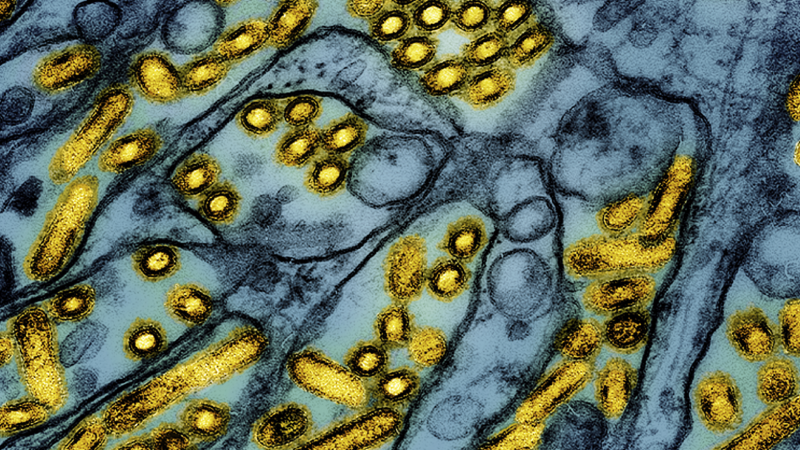Women stock up on abortion pills and Plan B, fearing new restrictions under Trump
As millions of Americans were waking up last Wednesday morning to learn that Donald Trump won the presidency, it dawned on Dr. Angel Foster that she was about to be very busy.
Foster is co-founder of the Massachusetts Medication Abortion Access Project, or the MAP, a telehealth provider that sends abortion medication through the mail to patients across the U.S., including states where it’s illegal.
On a typical day, Foster says between 130 and 140 people fill out the organization’s intake form — but the day following the presidential election there were more than 1,000.
“It has been a very, very challenging couple of days for our team,” says Foster, adding that many of these patients are not pregnant, but are instead buying the medication for future use.
The MAP is one of several telehealth abortion providers seeing an influx of requests. Last week, Aid Access, Hey Jane and Wisp all told NPR they had surges in orders for abortion pills.
Though President-elect Trump has promised to veto any federal abortion ban, he can still wield the powers of the executive branch to curtail access. And because the majority of abortions in the U.S are done via a two-pill regimen that essentially causes a miscarriage, any efforts to limit abortion care will likely target these medications.
It’s understandable that people are afraid right now, based on what happened in the first Trump administration, says Brittany Fonteno, president of the National Abortion Federation, an organization that represents doctors and clinics that provide abortions.
“We can expect that a second Trump administration — without the guardrails, without the protection of Roe v. Wade — could be even more devastating for abortion rights and access,” says Fonteno.
For example, it’s possible that Trump could prohibit telehealth abortion. Or he might implement restrictions on the prescribing or mailing of abortion pills. Because of the Supreme Court’s conservative majority, regulatory changes stand a better chance of weathering legal challenges.
When he was last in office, Trump appointed three justices to the Supreme Court, including for the vacancy left by the late Ruth Bader Ginsburg, a champion of abortion rights. This led to the overturning of Roe v. Wade and ended the constitutional right to an abortion in 2022.
Any changes to federal abortion policy will likely occur through the Department of Justice or the Department of Health and Human Services. Trump’s selections to lead these departments have clashing stances on abortion.
Trump has said he’ll nominate Florida Rep. Matt Gaetz to be the next attorney general. Gaetz opposes abortion. If confirmed, he’ll decide how to enforce laws, including the Comstock Act, a dormant anti-obscenity law from the 1800s that could be used to try to ban abortions nationwide.
In contrast, Trump wants Robert F. Kennedy Jr. — who supports abortion rights — to be his secretary of the Department of Health and Human Services. This department oversees the Food and Drug Administration, which governs rules around abortion medication — like whether pills can be sent in the mail or prescribed via telehealth.
This issue is particularly critical because the Biden administration loosened rules around prescribing and dispensing abortion medications, expanding access to telehealth care. The policy change has especially benefited people in communities that lack access to abortion care. In fact, nearly 1 out of 5 abortions in the U.S. are done via telehealth.
Between 2020 and 2023, the number of abortions in the U.S. grew by 11%, according to the Guttmacher Institute, a think tank that supports abortion rights.
Anti-abortion groups see this expansion as a major threat to their goals.
“The pro-life movement has a lot of work ahead of us,” says Kelsey Pritchard with Susan B. Anthony Pro-Life America, a powerful anti-abortion lobby. The group has said they are focused on dismantling policies of the Biden-Harris administration.
Students for Life of America’s legislative agenda includes passing state and federal laws limiting access to abortion pills, which they call a chemical abortion. They say they have the support of many state legislators as well as many Republican members of Congress.
While the Trump administration will have many tools to restrict abortion access, the president-elect hasn’t said exactly what he’ll do or when he might do it. Legal experts say it’s also not clear how challenges to any new regulations or laws will play out in the courts.
In the meantime, patients are planning for a new era.
In addition to an increased demand for abortion pills, Hey Jane and Wisp also report spikes in requests for emergency contraception, which prevents sperm from fertilizing an egg. A similar thing happened after Roe was overturned, recalls Wisp CEO Monica Cepak.
“I think you find these moments to be a rallying call for women to take agency and more ownership over their health,” Cepak says.
Barely Legal: Some officials in Alabama want to outlaw delta-8. Others want to make it safer
Delta-8, which comes from hemp, is processed to create a concentrated form of THC. It’s legal for sale in Alabama … at least for now.
Dozens of prisoners allege a culture of violence by guards at federal facility in Virginia
At a federal prison in rural Virginia, more than 50 prisoners say they've been abused. But when they try to file a complaint — they're stopped, often by the same guards they say are abusing them.
Dreaming of a white Christmas? There’s hope, depending on where you live
A few parts of the country may get a white Christmas in 2024, but the majority will not. And in the future, shifts in weather patterns driven by global warming may make them even less likely.
The CDC has confirmed the first severe case of bird flu in a human in the U.S.
A person in Louisiana has been hospitalized after becoming infected with a case of bird flu that's been linked to wild birds and poultry.
Turkey looks set to play an outsize role in shaping the new Syria after Assad
As the world watches Syria grapple with the aftermath of Bashar al-Assad's brutal regime and the formation of a new government, one neighbor has emerged as having great influence over the new Syria.
The Federal Reserve lowers interest rates again — but hints at fewer cuts next year
The Fed lowered interest rates by a quarter percentage point — but policymakers are projecting fewer rate cuts next year as inflation remains elevated.





